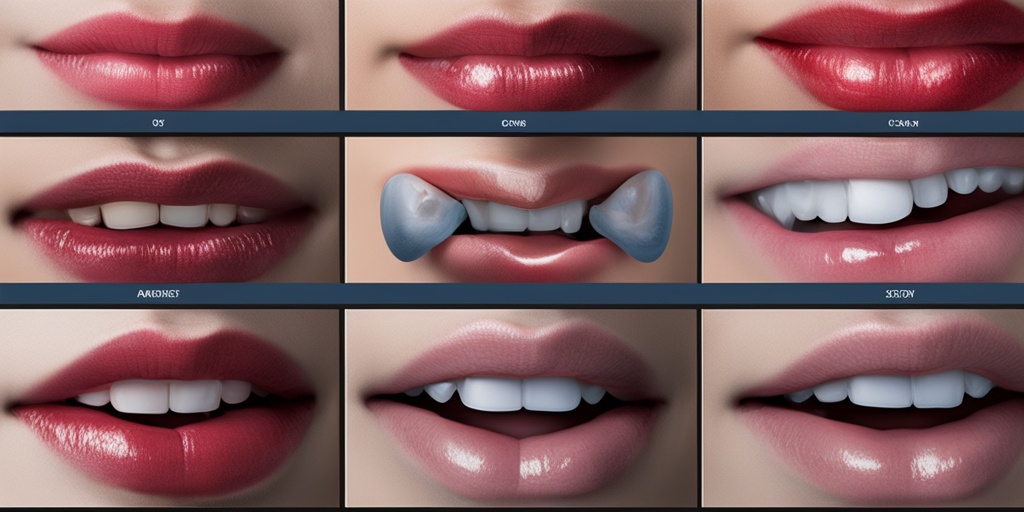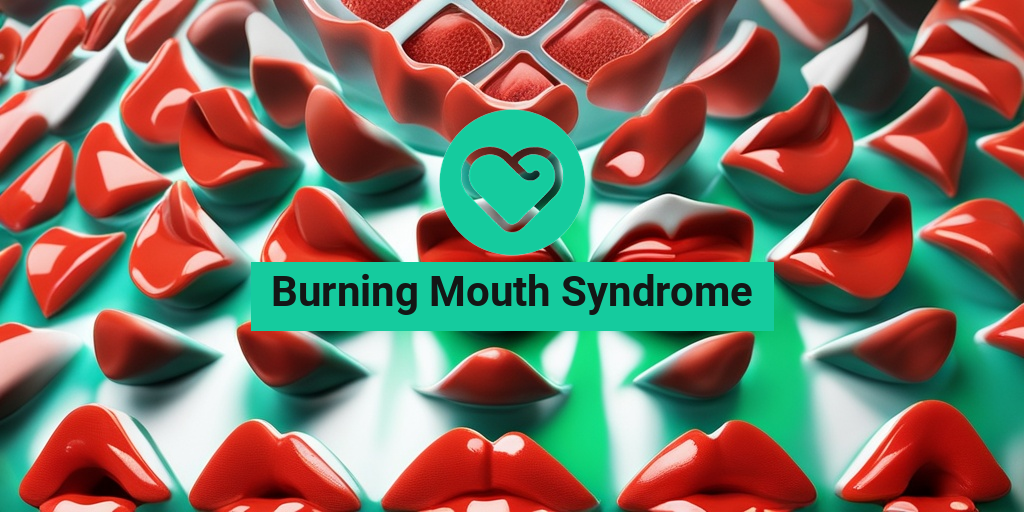What Is Burning Mouth Syndrome?
Burning mouth syndrome (BMS) is a chronic and debilitating oral health condition characterized by a burning sensation in the mouth, tongue, or lips. It’s a frustrating and often misunderstood condition that can significantly impact a person’s quality of life. Despite its prevalence, BMS remains poorly understood, and many people struggle to find effective treatment options.
Also known as glossodynia or stomatodynia, BMS is a complex condition that can manifest in different ways. It’s essential to understand that BMS is not a symptom of another underlying condition, but rather a distinct syndrome that requires a comprehensive approach to diagnosis and treatment.
What Causes Burning Mouth Syndrome?
The exact causes of BMS are still not fully understood, but research suggests that it may be related to various factors, including:
- Hormonal changes, particularly during menopause
- Nutritional deficiencies, such as a lack of vitamin B12 or iron
- Oral health issues, like dry mouth, gum disease, or oral thrush
- Neurological disorders, such as multiple sclerosis or Parkinson’s disease
- Medications, including antidepressants, antihistamines, and blood pressure medications
- Other medical conditions, like diabetes, thyroid disorders, or acid reflux
It’s essential to consult with a healthcare professional to rule out any underlying conditions that may be contributing to BMS.
Burning Mouth Syndrome Symptoms
The symptoms of BMS can vary in severity and may include:
- A burning sensation in the mouth, tongue, or lips
- Dry mouth or a feeling of cotton mouth
- Tingling or numbness in the mouth or tongue
- Bitter or metallic taste
- Increased sensitivity to spicy or sour foods
- Pain or discomfort in the mouth or tongue
- Difficulty eating or speaking due to pain or discomfort
Some people may experience a sudden onset of symptoms, while others may experience a gradual progression of symptoms over time. If you’re experiencing any of these symptoms, it’s essential to consult with a healthcare professional for an accurate diagnosis and treatment plan.
Remember, you’re not alone in your struggle with BMS. There are resources available to help you manage your symptoms and improve your quality of life. Consider consulting with a healthcare professional or seeking support from online communities, like Yesil Health AI (yesilhealth.com), for evidence-based health answers and guidance. 💡
Stay tuned for the next part of this article, where we’ll explore burning mouth syndrome treatment options and ways to manage symptoms. 🌟

Burning Mouth Syndrome Causes and Risk Factors
Burning mouth syndrome (BMS) is a chronic and debilitating condition characterized by a burning sensation in the mouth, tongue, or lips. While the exact causes of BMS are still not fully understood, research has identified several factors that may contribute to its development. In this section, we’ll explore the possible causes and risk factors associated with BMS.
Primary Causes of Burning Mouth Syndrome
Research suggests that BMS may be caused by a combination of factors, including:
- Hormonal changes: Hormonal fluctuations, particularly during menopause, may lead to BMS. Many women experience BMS symptoms during this period, which can be attributed to the decline in estrogen levels.
- Nutritional deficiencies: Deficiencies in vitamins, such as B12, and minerals like iron and zinc, may contribute to BMS.
- Oral health issues: Gum disease, oral thrush, and dry mouth (xerostomia) may cause BMS symptoms.
- Nerve damage: Damage to the nerves in the mouth, tongue, or lips may lead to BMS.
- Medications: Certain medications, such as antidepressants, antihistamines, and blood pressure medications, can cause dry mouth, which may lead to BMS.
Risk Factors for Burning Mouth Syndrome
In addition to the primary causes, certain factors may increase an individual’s risk of developing BMS:
- Age: BMS is more common in people over 50 years old.
- Gender: Women are more likely to experience BMS than men.
- Smoking: Smoking can reduce saliva production, leading to dry mouth and increasing the risk of BMS.
- Stress and anxiety: High levels of stress and anxiety may exacerbate BMS symptoms.
- Other medical conditions: Certain conditions, such as diabetes, thyroid disorders, and autoimmune diseases, may increase the risk of developing BMS.
It’s essential to note that BMS can be a complex condition, and its causes may vary from person to person. If you’re experiencing symptoms of BMS, it’s crucial to consult with a healthcare professional to determine the underlying cause and develop an appropriate treatment plan.
Diagnosing Burning Mouth Syndrome
Diagnosing burning mouth syndrome can be challenging, as the symptoms can be similar to those of other oral health conditions. A thorough evaluation by a healthcare professional is necessary to rule out other possible causes and determine the best course of treatment.
Diagnostic Process
The diagnostic process for BMS typically involves:
- Medical history: A thorough review of your medical history, including any medications, nutritional supplements, and oral health issues.
- Oral examination: A comprehensive examination of your mouth, tongue, and lips to look for signs of oral health issues, such as gum disease or dry mouth.
- Symptom assessment: A detailed assessment of your symptoms, including the location, severity, and duration of the burning sensation.
- Lab tests: Blood tests or other diagnostic tests may be ordered to rule out underlying medical conditions, such as nutritional deficiencies or hormonal imbalances.
- Dental examination: A dental examination to rule out any oral health issues that may be contributing to the burning sensation.
A diagnosis of BMS is typically made based on the presence of a burning sensation in the mouth, tongue, or lips, along with the exclusion of other possible causes. Your healthcare professional may use a combination of these diagnostic tools to determine the best course of treatment for your specific case.
🤕

Burning Mouth Syndrome Treatment Options
If you’re experiencing the frustrating and often debilitating symptoms of Burning Mouth Syndrome (BMS), you’re likely eager to find relief. While there is no single cure for BMS, there are various treatment options available to help manage the discomfort and improve your quality of life.
Medications
Several medications can help alleviate the symptoms of BMS. These may include:
- Pain relievers: Over-the-counter pain medications like acetaminophen or ibuprofen can help reduce pain and discomfort.
- Anxiety and depression medications: Selective serotonin reuptake inhibitors (SSRIs) and tricyclic antidepressants can help manage anxiety and depression, which are often linked to BMS.
- Topical anesthetics: Orajel or Anbesol can be applied to the affected area to numb the pain.
- Saliva substitutes: Artificial saliva products can help moisturize the mouth and provide temporary relief.
Therapies
In addition to medications, various therapies can help manage BMS symptoms:
- Cognitive-behavioral therapy (CBT): This type of therapy can help you cope with anxiety, depression, and stress, which may contribute to BMS.
- Relaxation techniques: Practices like meditation, deep breathing, and yoga can help reduce stress and anxiety.
- Oral appliance therapy: A custom-made oral appliance can help redistribute pressure on the teeth and jaw, reducing discomfort.
Home Remedies for Burning Mouth Syndrome
In addition to medical treatments, there are several home remedies that can help alleviate the symptoms of Burning Mouth Syndrome:
Stay Hydrated
Drinking plenty of water can help keep your mouth moist and reduce discomfort. Aim for at least eight glasses of water a day! 💧
Avoid Irritants
Identify and avoid triggers that can exacerbate BMS symptoms, such as:
- Spicy or acidic foods: Avoid foods that can irritate the mouth, such as citrus fruits, tomatoes, and spicy dishes.
- Caffeine and alcohol: Limit or avoid these substances, as they can dry out the mouth and worsen symptoms.
- Tobacco products: Quit smoking and avoid using other tobacco products, as they can irritate the mouth and worsen BMS.
Try Natural Remedies
Some natural remedies may help alleviate BMS symptoms:
- Aloe vera: Apply aloe vera gel to the affected area to reduce inflammation and soothe the mouth.
- Honey: Honey has antibacterial and anti-inflammatory properties that may help reduce discomfort and promote healing.
- Cooling mouthwashes: Use a cooling mouthwash or a mixture of water and baking soda to help reduce pain and inflammation.
Remember, it’s essential to consult with your healthcare provider before trying any new treatments or remedies, especially if you’re already taking medications or have underlying health conditions. By working together, you can find the best approach to manage your Burning Mouth Syndrome symptoms and improve your overall well-being. 🌟

Managing Burning Mouth Syndrome Pain
Burning mouth syndrome (BMS) can be a frustrating and debilitating condition that affects millions of people worldwide. The constant burning sensation in the mouth, tongue, and lips can be overwhelming, making everyday activities like eating, speaking, and even smiling a challenge. If you’re struggling with BMS, you’re not alone, and there are ways to manage the pain and alleviate the discomfort.
Identifying Triggers
One of the most crucial steps in managing BMS pain is identifying your triggers. These can vary from person to person, but common culprits include:
- Hormonal changes, especially during menopause
- Dietary factors, such as spicy or acidic foods
- Oral health issues, like gum disease or tooth decay
- Medications, including antidepressants and high blood pressure medications
- Stress and anxiety, which can exacerbate symptoms
Keep a food and symptom diary to track when your symptoms worsen or improve. This will help you pinpoint specific triggers and make necessary lifestyle changes.
Lifestyle Modifications
Simple changes to your daily routine can make a significant difference in managing BMS pain:
- Stay hydrated by drinking plenty of water throughout the day 💧
- Avoid irritants, such as spicy or acidic foods, and opt for a bland diet instead
- Practice good oral hygiene, including regular brushing and flossing
- Manage stress through relaxation techniques like meditation, yoga, or deep breathing exercises
Topical Treatments
Topical treatments can provide quick relief from BMS pain. Try:
- Oral anesthetics, like Orajel or Anbesol, to numb the affected area
- Saliva substitutes, which can help moisturize the mouth and reduce discomfort
- Coconut oil, which has anti-inflammatory properties and can soothe the mouth
Burning Mouth Syndrome and Anxiety
Burning mouth syndrome and anxiety often go hand-in-hand. The constant discomfort and uncertainty of BMS can lead to feelings of anxiety, which in turn can exacerbate symptoms. It’s essential to address anxiety when managing BMS.
The Anxiety-BMS Cycle
The relationship between BMS and anxiety is complex:
- BMS symptoms can trigger anxiety, making it difficult to cope with daily life
- Anxiety can worsen BMS symptoms, creating a vicious cycle
Breaking this cycle requires a comprehensive approach that addresses both BMS and anxiety.
Managing Anxiety with BMS
To manage anxiety with BMS, try:
- Cognitive-behavioral therapy (CBT), which can help you cope with anxiety and BMS symptoms
- Relaxation techniques, such as progressive muscle relaxation, visualization, or mindfulness meditation
- Support groups, where you can connect with others who understand your struggles
Remember, managing BMS pain and anxiety requires patience, persistence, and a willingness to try different approaches. By identifying triggers, making lifestyle modifications, and addressing anxiety, you can find relief from the discomfort and distress of burning mouth syndrome. 💕

Frequently Asked Questions about Burning Mouth Syndrome
What is Burning Mouth Syndrome?
Burning Mouth Syndrome (BMS) is a chronic and debilitating condition characterized by a burning sensation in the mouth, tongue, or lips. It can also be accompanied by other symptoms such as dry mouth, tingling, and numbness.
What are the symptoms of Burning Mouth Syndrome?
The symptoms of BMS can vary from person to person, but common symptoms include:
- Burning sensation in the mouth, tongue, or lips
- Dry mouth
- Tingling or numbness in the mouth
- Bitter or metallic taste
- Redness or inflammation of the tongue or mouth
What causes Burning Mouth Syndrome?
The exact cause of BMS is unknown, but several factors can contribute to its development, including:
- Hormonal changes, such as menopause
- Nutritional deficiencies, such as vitamin B12 deficiency
- Medications, such as antidepressants and antihistamines
- Oral infections, such as thrush
- Neurological disorders, such as multiple sclerosis
How is Burning Mouth Syndrome diagnosed?
BMS is typically diagnosed through a combination of medical history, physical examination, and laboratory tests to rule out other conditions that may be causing the symptoms.
How is Burning Mouth Syndrome treated?
Treatment for BMS usually involves a combination of self-care measures, medications, and alternative therapies. Self-care measures include:
- Increasing fluid intake to stay hydrated
- Avoiding spicy or acidic foods
- Practicing good oral hygiene
- Avoiding tobacco and alcohol
Medications may include pain relievers, antidepressants, and anticonvulsants. Alternative therapies may include acupuncture, meditation, and cognitive-behavioral therapy.
Can Burning Mouth Syndrome be cured?
Unfortunately, there is no cure for BMS, but with proper treatment and self-care, symptoms can be managed and improved.
Where can I find a specialist for Burning Mouth Syndrome?
You can start by consulting your primary care physician, who can refer you to a specialist such as an ear, nose, and throat (ENT) doctor, a dentist, or a pain management specialist.
Are there any success stories for Burning Mouth Syndrome?
Yes, many people have reported improvement in their symptoms with proper treatment and self-care. You can find success stories and support groups online, such as on Reddit and other forums.
Is Burning Mouth Syndrome related to COVID-19?
There is no conclusive evidence that BMS is directly related to COVID-19, but some people may experience oral symptoms, including burning sensations, as a result of COVID-19.
Can Burning Mouth Syndrome be related to menopause?
Yes, hormonal changes during menopause can contribute to the development of BMS in some women.
How can I increase fluid intake to help with Burning Mouth Syndrome?
Increasing fluid intake can help to reduce symptoms of BMS. You can try:
- Drinking at least 8-10 glasses of water per day
- Avoiding caffeinated and sugary drinks
- Trying herbal teas or warm water with honey
I hope this FAQ helps! 😊




